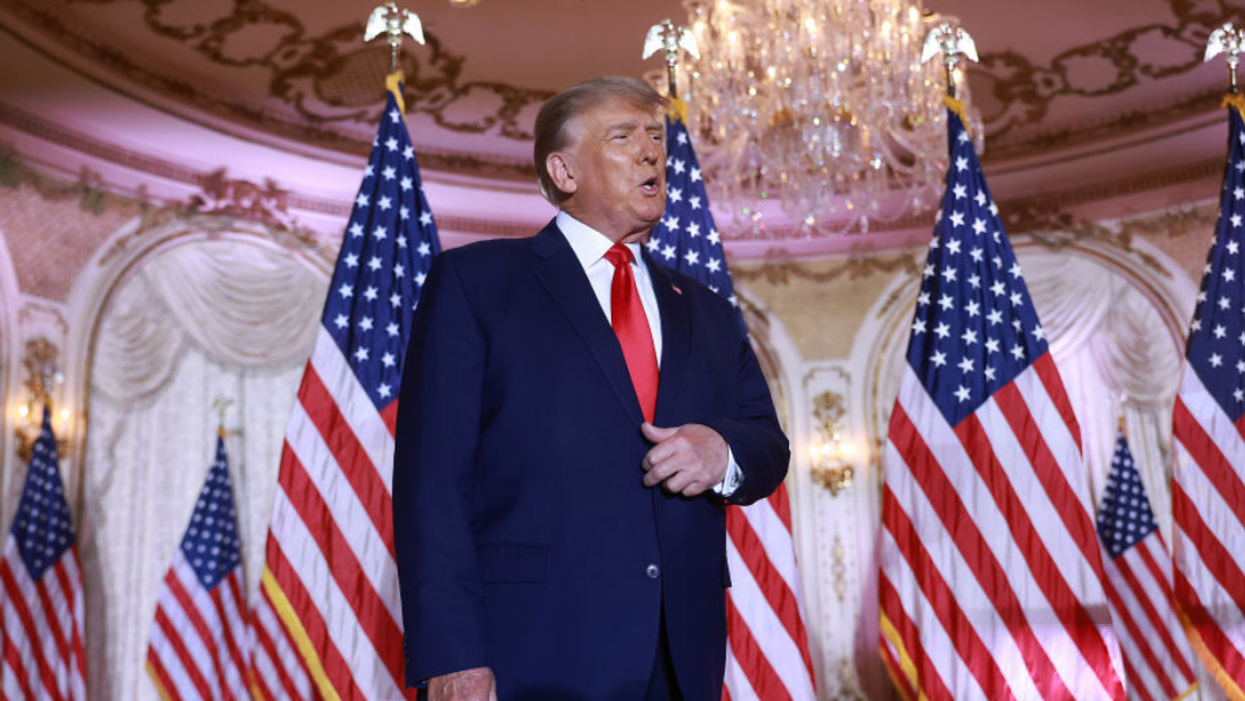Martin Skladany is a law professor at Penn State Dickinson Law.
Former President Trump has been called many things from a would be tyrant to an alleged sexual predator. In the aftermath of the 2022 elections, a new moniker may sound his death knell– a loser. He lost in 2020, as did his party. With inflation running high in a midterm election, he led his party to vastly underperform. Many Republicans are now advocating ditching him but no plan has emerged as to how to do so given Trump has a loyal base in the party.
The first step Republicans should take to distance themselves from Trump is to back the Protecting Our Democracy Act, which outlines roughly a dozen ideas to reduce the ability of future presidents to weaken democratic institutions through the abuse of power. Doing so would provide cover to Republican politicians still hesitant to publicly repudiate Trump because the act supports executive reform that would apply to all future presidents, irrespective of party.
The draft legislation would strengthen the prohibition against emoluments, require disclosure to the F.B.I. of any offers by foreign entities to U.S. political campaigns, fortify whistle-blower protections, limit the president's pardon power in self-dealing circumstances, require tax returns to be disclosed by presidents, and accelerate the enforcement of congressional subpoenas, among other provisions.
The bill already passed the House of Representatives on December 9, 2021. Yet with the upcoming 118th Congress, it will have to be reintroduced in both chambers.
Republicans claim that inconsistent communication by Democrats on why they support PODA lead Republicans to swear off any bipartisan executive reform effort. Some Democrats stated that the Protecting Our Democracy Act was a needed response to Trump's reckless actions in power, similar to the ethics reforms that followed Nixon's tenure. Other Democrats stressed that it couldn't apply to the past but would be forward facing.
Of course, PODA is in response to President Trump, but it is also unequivocally a rejoinder to questionable actions by many past presidents. Former President Clinton pardoned Marc Rich, whose spouse had earlier donated close to a half million dollars to his foundation.
Yet liberal politicians are less threatened by Trump after his growing list of electoral losses. This was apparent even before the midterms when Democrats boosted MAGA Republicans in many primaries, viewing them as weaker opponents than non-election denying Republicans. Many Democrats have moved on from fearing Trump, to potentially privately wanting him to run in 2024 to boost Democratic chances, not just to retain the presidency but also to control Congress. This Democratic shift welcoming Trump because of his unelectability provides an opening for Republicans to no longer stonewall PODA.
It is likely that numerous Republicans are beginning to see the same, or at least speak more freely about what they have understood for some time–that Trump is weighing them down. This Republican shift–desiring to move beyond him for the same reason Democrats want him to run–provides another opportunity for Republicans to help themselves by backing PODA passage.
Even before the midterms, ten Republican Senators agreed to co-sponsor the Electoral Count Reform Act, which like PODA, equally applies to all future presidents. They provided their support for the Electoral Count Reform Act because they understood they could either support the needed reform as an uneventful bureaucratic bill now or potentially have to face down Trump again if he lost the 2024 election but refused to concede.
Getting the Protecting Our Democracy Act through Congress is possible given that many of its provisions were initially championed by Republicans. For example, Republican Senator Mike Lee from Utah previously introduced legislation limiting the emergency powers of the president, which tracks with related PODA provisions that would end many such declarations quickly without Congressional extensions.
Individual parts of the Protecting Our Democracy Act can easily be supported while others discarded. For example, modest provisions already passed on March 11, 2022 by being tucked into the omnibus spending bill. Republicans can use this modular approach to PODA to refuse to back any parts they dislike, yet it is hard to see what Republicans might not like in the act. Do they really not want the ability to better enforce Congressional subpoenas, a provision in PODA, given their desire to question Hunter Biden?
This highlights the fact that by supporting PODA, Republicans can put pressure on Biden. The current administration has provided modest support to executive reform in general but, from the start, opposed numerous draft provisions. Any use of his veto in this area would taint Biden's standing, while his signature on PODA would, appropriately, constrain his scope of action.
Republicans who no longer view Trump as beneficial to their careers understand that a gradual public shift away from Trump is strategic. The Protecting Our Democracy Act is a gift. They are seasoned enough to spin it however they'd like–fealty to the Constitution, which it is, or enabling better oversight of all presidents going forward, which will always be needed. There are few saints and fewer presidents; the chances of overlap are low.


















 Senate Committee on Commerce, Science, and Transportation ranking member Sen. Maria Cantwell (D-WA) (R) questions witnesses during a hearing in the Russell Senate Office Building on Capitol Hill on February 10, 2026 in Washington, DC. The hearing explored the proposed $3.5 billion acquisition of Tegna Inc. by Nexstar Media Group, which would create the largest regional TV station operator in the United States. (Photo by Chip Somodevilla/Getty Images)
Senate Committee on Commerce, Science, and Transportation ranking member Sen. Maria Cantwell (D-WA) (R) questions witnesses during a hearing in the Russell Senate Office Building on Capitol Hill on February 10, 2026 in Washington, DC. The hearing explored the proposed $3.5 billion acquisition of Tegna Inc. by Nexstar Media Group, which would create the largest regional TV station operator in the United States. (Photo by Chip Somodevilla/Getty Images)
